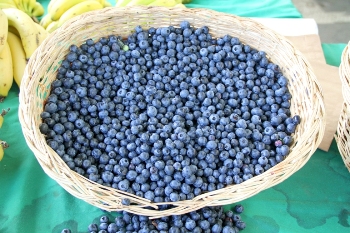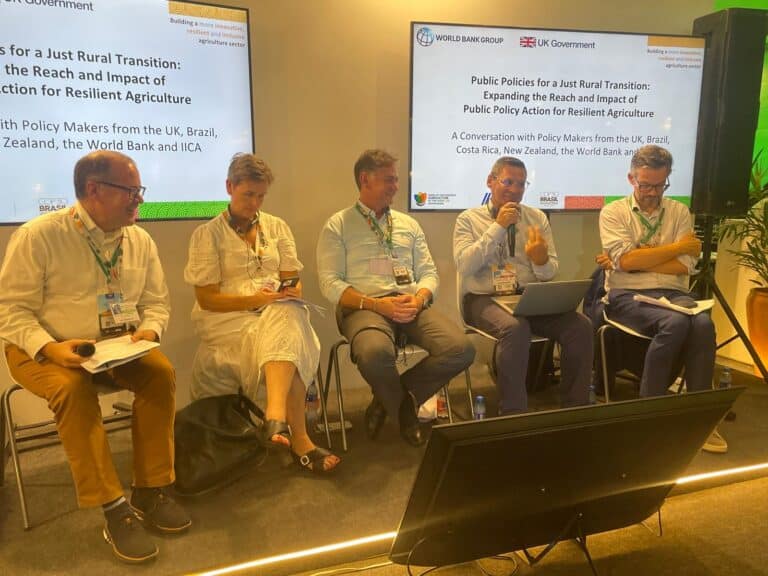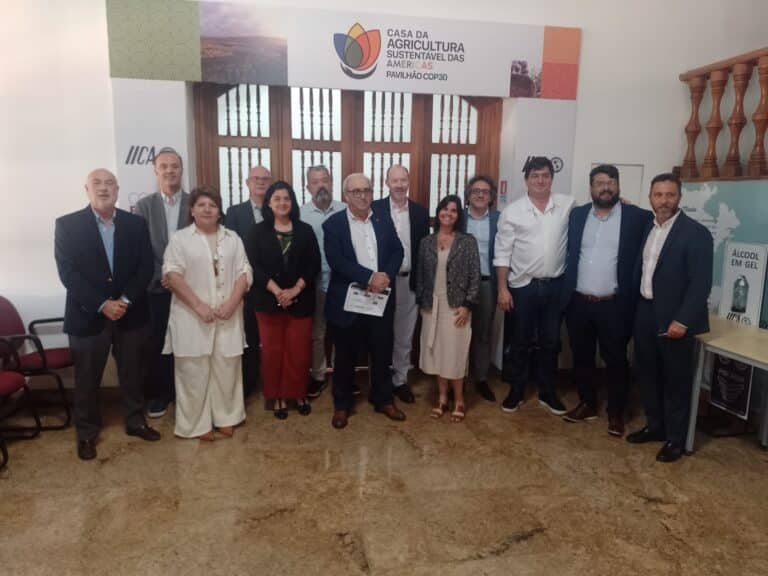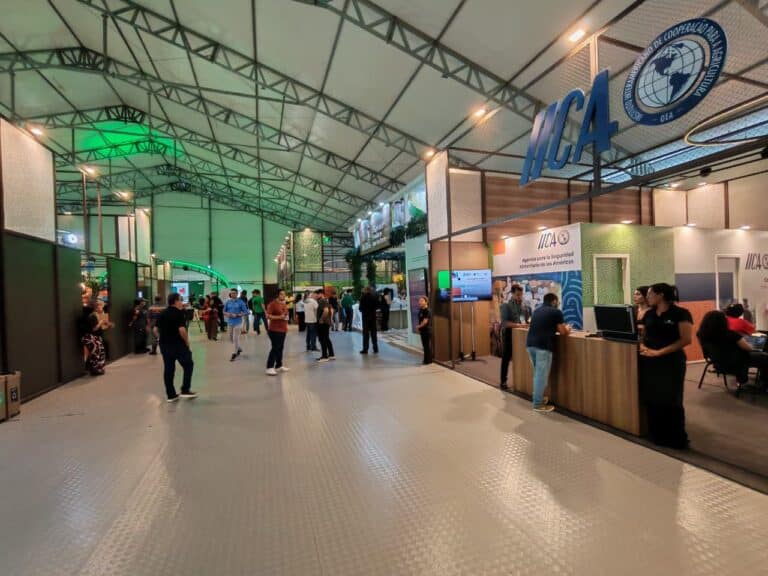At a meeting in Suriname, specialists from the Caribbean discussed the challenges facing agricultural production in the region, and the constraints to the implementation of innovation processes.

Suriname, November 13, 2014 (IICA). With a view to raising awareness of the importance of implementing initiatives aimed at innovation in agriculture and food production, Caribbean specialists met in Suriname to discuss the factors that hold back innovation processes and to share experiences aimed at enhancing the sector’s competitiveness in the region.
An evaluation carried out to identify the constraints to innovation in Trinidad and Tobago, Suriname, Guyana and Belize revealed that, while the research and development infrastructure is in need of improvement, there is an even greater need to improve talent management, enhance capabilities and increase the number of good professionals involved in the processes and adopting innovations.
Humberto Gómez, a regional specialist in technological innovation stationed at IICA/Trinidad and Tobago, believes that the loss of professionals from the sector is due to the region’s inability to retain some of its most highly trained personnel, which in turn hinders the renewal of personnel. “When professionals retire they are not replaced with personnel of the same caliber,” he affirmed.
A number of factors combine to make the Caribbean the region with the highest rate of emigration of university-trained professionals in the world. Gómez explained that most young people are not interested in the agrifood sector, and those who are do not have good opportunities for further professional development.
“The region needs to reduce the loss of talent, improve the education of new professionals to attract investment in research and development, and promote competitive food production,” he added.
The specialists concluded that more efficient production systems were needed to meet the challenges of food security and the local demand for food, which could be achieved by means of sustainable intensification and diversification. The fact that the Caribbean spends more than four billion dollars per year on food imports is an excellent commercial opportunity to promote the development and regional integration of the agribusiness subsector.
During the meeting, the specialists shared innovation initiatives undertaken in the Caribbean countries. One of them involves organizing women farmers to adopt practices that add value and increase their capacity to produce and market the açai berry, a native species, with a view to generating income and improving the living standards of families in Suriname’s rural communities.
A consulting firm hired to draft the Master Plan for the Development of Agriculture in Suriname also presented initiatives aimed at incorporating thousands of hectares of unused land into crop and livestock production through the intensive use of technologies.
The seminar, held in October as part of the Caribbean Week of Agriculture, was promoted by the leader of IICA’s Resilience and Comprehensive Risk Management in Agriculture project, Muhammad Ibrahim.
The participants included specialists from IICA, the Center for Agricultural Research in Suriname (CELOS), the Pater Ahlbrinck Institute (PAS) of Suriname and Israel’s Kaplan Planners Ltd.; and members of the public and private sectors, other specialists and representatives of farmers’ organizations, academia, research institutions and international development agencies.
More information:
humberto.gomez@iica.int











